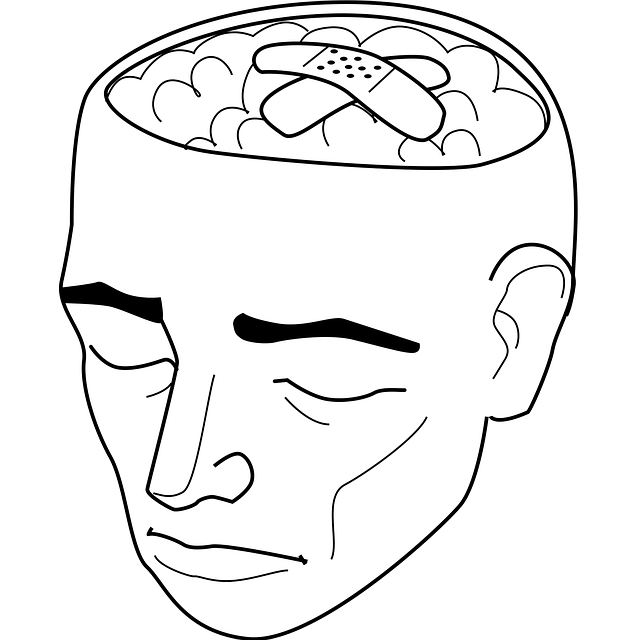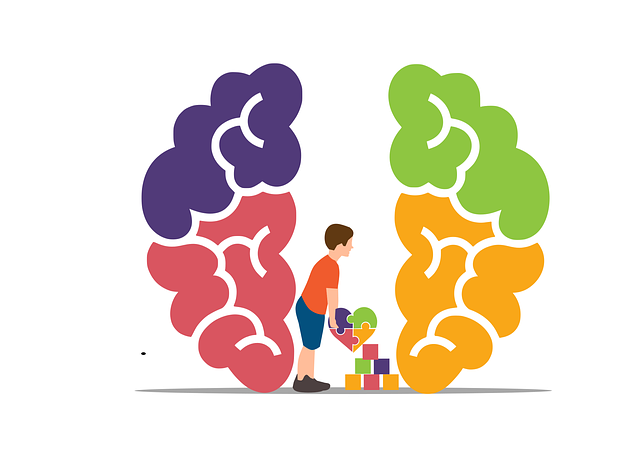Mental health advocacy, particularly through Lone Tree Gender-Affirming Care Therapy, aims to create inclusive societies where everyone feels safe and supported in their emotional healing journeys. This therapy revolutionizes support for gender identity issues by offering tailored coping mechanisms like Trauma Support Services, Mindfulness Meditation, and Compassion Cultivation. Overcoming stigma through open dialogue, inclusive environments, and mental wellness coaching programs empowers clients to share experiences without judgment. Measuring the success of these initiatives—through surveys, stress levels, and resilience assessments—is crucial for refining their effectiveness, emphasizing the long-term positive effects of mental health advocacy.
Mental health advocacy initiatives play a pivotal role in creating a more inclusive and supportive society. This article delves into the critical aspects of mental health activism, exploring various strategies to enhance well-being. From understanding the essence of advocacy to focusing on gender-affirming care and overcoming stigma, each section offers valuable insights. Learn about effective lone tree support systems and discover methods to measure the impact of advocacy programs, including the unique contribution of gender-affirming therapy in addressing mental health challenges.
- Understanding Mental Health Advocacy: A Necessary Conversation
- The Role of Gender-Affirming Care in Advocacy Initiatives
- Overcoming Stigma: Strategies for Effective Lone Tree Support
- Measuring Success: Evaluating the Impact of Mental Health Advocacy Programs
Understanding Mental Health Advocacy: A Necessary Conversation

Mental health advocacy is a powerful tool for creating positive change and ensuring that individuals receive the support they need. It involves raising awareness, challenging stigma, and promoting understanding to create a more inclusive and supportive society. This conversation is crucial, especially when considering the unique needs of diverse communities, such as those seeking Lone Tree Gender-Affirming Care Therapy. By advocating for mental health, we initiate necessary discussions that can lead to improved access to care, tailored interventions, and ultimately, enhanced emotional healing processes.
Initiatives like community outreach programs play a vital role in this advocacy by bringing attention to the various aspects of mental wellness. These programs aim to educate, support, and empower individuals and families through resilience-building activities and resources. In light of these efforts, it’s essential to recognize that mental health advocacy is not just about raising awareness; it’s about fostering an environment where everyone feels safe, understood, and supported in their emotional healing journeys.
The Role of Gender-Affirming Care in Advocacy Initiatives

In the realm of mental health advocacy, gender-affirming care is emerging as a powerful tool to support individuals navigating their identity and experiences. Initiatives focused on Lone Tree Gender-Affirming Care Therapy recognize the unique challenges faced by those in transition or exploring their gender expression. This approach prioritizes creating safe spaces where individuals can access comprehensive therapy tailored to their needs, fostering an environment of acceptance and understanding.
By incorporating practices like Trauma Support Services, Mindfulness Meditation, and Compassion Cultivation, advocacy groups are equipping people with essential coping mechanisms. These strategies not only enhance overall well-being but also facilitate meaningful connections within support networks. As a result, individuals feel empowered to advocate for themselves and others, creating a ripple effect of positive change in their communities.
Overcoming Stigma: Strategies for Effective Lone Tree Support

Overcoming stigma is a pivotal aspect of providing effective support for individuals seeking Lone Tree gender-affirming care therapy. The societal and cultural barriers surrounding mental health, particularly within marginalized communities, can deter people from accessing essential services. Stigma often manifests as prejudice, discrimination, or negative perceptions, creating a layer of isolation and shame that prevents open conversations about mental wellness. To combat this, various strategies can be employed.
Self-care practices are fundamental for both mental health professionals and the individuals they support. Encouraging open dialogue, fostering inclusive environments, and integrating mental wellness coaching programs into therapeutic settings can facilitate safe spaces where clients feel empowered to share their experiences without fear of judgment. Additionally, risk assessment tools should be implemented to identify potential risks within these interactions, ensuring the safety and well-being of both professionals and clients. By integrating these approaches, we can create a supportive network that challenges stigma, promotes understanding, and paves the way for transformative mental wellness journeys.
Measuring Success: Evaluating the Impact of Mental Health Advocacy Programs

Measuring the success of mental health advocacy initiatives is a crucial step in understanding their impact and identifying areas for improvement. Programs aimed at promoting mental well-being, such as Lone Tree Gender-Affirming Care Therapy, often focus on various outcomes to ensure effectiveness. One key aspect is evaluating changes in participants’ coping skills development; this can be assessed through pre and post-program surveys, tracking improvements in managing stress, anxiety, or other mental health challenges.
Additionally, the incorporation of practices like mindfulness meditation within these initiatives allows for further evaluation. By measuring reductions in symptoms of depression prevention and increased overall resilience, advocates gain valuable insights into the program’s success. Such evaluations not only help refine existing programs but also provide evidence to support the importance of mental health advocacy and its long-lasting positive effects on individuals’ lives.
Mental health advocacy initiatives, encompassing understanding, support, and evaluation, are vital components in fostering a more inclusive and compassionate society. By recognizing the unique needs of individuals, such as those requiring gender-affirming care, and implementing effective strategies to overcome stigma, we can significantly enhance mental well-being. Lone Tree therapy, as an example of gender-affirming care, demonstrates the power of specialized support in transforming lives. As we continue to navigate this important conversation, it’s crucial to measure the impact of these programs to ensure they are effectively addressing the mental health challenges faced by diverse communities.










